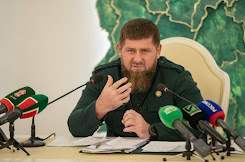
Heads of Caspian Sea states agree to use the sea for peaceful purposes; Putin: Joint exploitation of oil and gas fields in the Caspian Sea is already underway; Raisi: Cooperation between Caspian countries is of increasing importance due to international developments
The Caspian Sea heads of state agreed, during their sixth summit, held in the Turkmen capital Ashgabat, today, Wednesday, to use the Caspian Sea for peaceful purposes and to provide security in the region.
In the statement of the summit, the presidents reaffirmed that the activities of the riparian states of the Caspian Sea will be carried out on the basis of the following principles: "Using the Caspian Sea for peaceful purposes, transforming it into an area of peace, good neighbourliness, friendship and cooperation, and solving all issues related to the Caspian Sea by peaceful means."
An agreement was also reached on respect for sovereignty, territorial integrity, independence, sovereign equality of states, non-use of force or threat of force, mutual respect, cooperation and non-interference in each other's internal affairs, as well as on ensuring security and stability in the Caspian Sea region. .
In turn, Russian President Vladimir Putin, during his participation in the sixth summit of the countries bordering the Caspian Sea, referred to his country's call to deepen partnerships between the five Caspian countries, stressing that "the joint exploitation of oil and gas fields in the Caspian Sea is already being implemented." ".
Putin explained that "deepening partnerships between the five countries includes the policy and security sectors, and the five Caspian Sea regions should increase cooperation in rapid response to natural and other man-made emergencies," adding: "I propose to invite countries participating in the Tehran Agreement, which aims to to the protection of the Caspian Sea to the Conference".
Among Putin's proposals is the establishment of the Caspian Sea Film Festival.
Russian President Vladimir Putin is visiting Ashgabat to participate in the Sixth Caspian Sea Summit, at the invitation of the President of Turkmenistan, Sardar Berdymukhamedov.
 Also participating in the summit are the presidents of the Republic of Azerbaijan Ilham Aliyev, Iran's Ibrahim Raisi, and the Republic of Kazakhstan Kassym-Jomart Tokayev. The meeting is held in accordance with the agreement, which was reached in light of the results of the previous summit in Aktau, Kazakhstan in August 2018.
Also participating in the summit are the presidents of the Republic of Azerbaijan Ilham Aliyev, Iran's Ibrahim Raisi, and the Republic of Kazakhstan Kassym-Jomart Tokayev. The meeting is held in accordance with the agreement, which was reached in light of the results of the previous summit in Aktau, Kazakhstan in August 2018.
On June 27, the Russian President's Assistant, Yuri Ushakov, announced that Russian President Vladimir Putin would meet with Iranian President Ibrahim Raisi, during their participation in the Caspian Sea Summit scheduled for June 29.
Iranian President Ebrahim Raisi welcomed the initiatives presented by the heads of states bordering the Caspian Sea, to develop economic cooperation in the fields of transportation, shipping, investment, tourism, and other economic activities, in particular, the need to strengthen cultural relations and protect the fragile environment of the Caspian Sea.
In his speech at the Sixth Summit of the Caspian Sea Countries, in Ashgabat, today, Wednesday, Raisi stressed that relations between Iran and Turkmenistan have always been expanding, pointing to the availability of opportunities and energies in order to raise the level of bilateral cooperation.
He declared his country's readiness for comprehensive cooperation on the basis of mutual respect and mutual benefit.































































